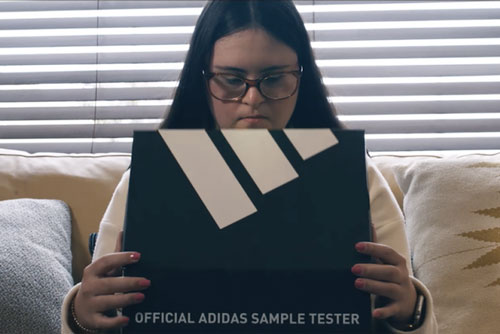It’s been more than five years since Florida athlete Chris Nikic did what doctors claimed was impossible. He became the first man with Down syndrome to complete the Iron Man triathlon. More specifically, Nikic swam 2.4 miles, biked 112 miles, and ran 26.2 miles. He finished the race in 16 hours, 46 minutes and nine seconds, making him eligible for recognition by Guiness World Records.
After the race, Nikic told reporters for the Orlando Sentinel, “The doctors and experts said I couldn’t do anything. So, I said, ‘Doctor! Experts! You need to stop doing this to me. You’re wrong!’”
Following his monumental accomplishment, Nikic joined forces with Adidas and FCB, the creative agency for the Canadian Down Syndrome Society, for the Runner 321 campaign, an effort to encourage marathons to designate a bib number (#321) for a neurodiverse athlete who qualifies for the race. According to business magazine Campaign, the number 321 is a reference to the fact that “95% of people with Down syndrome have trisomy 21—a full copy of chromosome 21, leading to three copies instead of two.”
Nikic wore bib #321 in the Boston Marathon in 2022 and since then, other marathons including New York, Chicago, London, Berlin and Tokyo have joined the campaign.
Now, the 26-year-old athlete and fellow athletes with Down syndrome are working with Adidas and FCB to design running shoes that accommodate the particular podiatric needs of individuals with Down syndrome.
Unbeknownst to many people outside the Down syndrome community, the 6 million people with Down have foot differences that make it painful to participate in sports and other physical activities. A 2006 study explained that “children with Down syndrome showed several orthopaedic anomalies including bony deformity of the forefoot (90%), flat foot (60%), isolated calcaneal valgus (24%), knee valgus (22%) and pronated flat foot (16%).”
Foot anomalies are likely one reason why people with Down syndrome are more likely to live with inactivity, obesity and related health problems.
In a promotional video about the shoe design process, Adidas Global CEO Bjorn Gulden says the Adidas product team “is working with athletes, including Chris, with disabilities to say what do you need. … There’s many, many needs around the world in different groups that we can actually care for, and I think this is just a start.”
The newly designed athletic shoes are due out in 2026.
Image: Screenshot from Adidas promotional video. View the video here.


